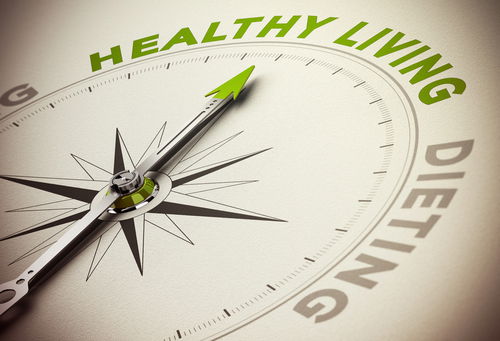Is Healthy Living on Your Compass?

Over two thousand years ago, Hippocrates is credited with advancing the systematic study of clinical methods. Although his teachings may have been commingled with the writers of the Corpus, he argued that disease was a product of environmental factors.
Greek medicine at the time knew almost nothing about physiology, but Hippocrates believed mystical illness was not a punishment of the gods but the product of environmental factors, such as diet and unhealthy living factors.
Today, nutritional medicine is a personalized approach to healthcare where each person’s dietary needs and preferences are considered as unique to them. This recognizes the intrinsic connection between diet, lifestyle, and well-being.
By incorporating healthy habits, individuals can reduce their reliance on medication, improve overall well-being, and potentially avoid developing chronic conditions like obesity using evidence-based interventions to promote health.
Whole Foods Add Taste and Texture
Mindful eating is an important aspect of healthy eating that involves being present and aware while consuming food. This includes paying attention to hunger and fullness cues, as well as being aware of the taste, texture, and satisfaction of each bite. By practicing mindful eating, individuals can avoid overeating.
Discussed below are whole food choices recommended for good health and nutrition, such as:
Whole Grains – Due to their complex carbohydrates, whole grains naturally lead to fewer calories consumed due to its high fiber content than can help you feel full and satisfied. Studies show whole-grain groups lose more body fat from the abdominal region than the refined-group.
Colorful Vegetables – In addition to providing essential nutrients, the rainbow diet can also help reduce the risk of chronic diseases such as heart disease and cancer. This is because plant-based foods are rich in phytochemicals, which have been linked to reducing inflammation and preventing cellular damage that can lead to these diseases.
Whole Fruits (not fruit juices) – Instead of keeping the doctor away, think an apple a day can help to keep belly fat away. Replacing high-calorie foods and snacks with a whole apple provides your body with dietary fiber, flavonoids and beta carotene. Whole fruit helps prevent annoying food cravings by keeping your feeling full longer.
Nuts, Seeds, Beans, and Plant Proteins – In addition to providing healthy fats, nuts, seeds and beans are powerhouse foods that provide a good source of lean plant-based protein. These are great alternatives for vegetarians or those looking to cut down on their intake of meat. Plus, they are a healthy alternative for those looking to control weight.
Plant Oils – From cooking to skincare, plant oils offer a natural and sustainable alternative to traditional products. However, it's important to note that while plant oils can provide numerous health benefits, it's still important to use proper portions. With moderation, you can easily incorporate beneficial plant oils for the long-term.
Contrary to popular belief, low-fat diets don't guarantee weight loss or better health outcomes. Instead of fixating on fat content, prioritize the quality of fats consumed for weight management. Select minimally processed foods like whole grains, vegetables, fruits, nuts, and plant oils while limiting sugar and processed foods.
Maintain Weight Loss with an Exercise Routine
To maintain weight loss after obesity, individuals need 60-90 minutes of moderate-intensity activity or lesser vigorous exercises. Adults should aim for at least 150-300 minutes of moderate aerobic activity weekly along with strengthening exercises twice a week. Regular exercise has been proven to have positive effects on mental health. In addition to physical health benefits, being more physically active can reduce symptoms of anxiety and depression, improve mood, and boost self-esteem.
Taking care of both physical and mental health through lifestyle changes like diet, exercise, stress reduction, skincare routines, posture maintenance, and overall well-being practices can contribute to looking youthful and feeling healthy. Prioritizing self-care through proper nutrition, physical activity, adequate sleep, stress management, mental stimulation, and social engagement is key to longevity. Even just 30 minutes of daily walking can uplift mood and enhance health.
By submitting this form, you agree to receive marketing text messages from us at the number provided, including messages sent by autodialer. Consent is not a condition of any purchase. Message and data rates may apply. Message frequency varies. Reply HELP for help or STOP to cancel. View our Privacy Policy and Terms of Service.

